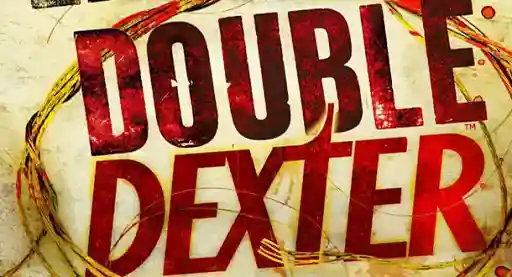When it comes to the act of reading, I'd classify myself as a sipper. I prefer to savor the flavor of words, not toss them down my eye-gullet like some boorish medieval peasant. So knowing I had to read and review Murakami's mammoth 1Q84 in ten days was the literary equivalent of frat party peer pressure. It's like gulping down a fine wine while a group of rowdy knuckleheads cheer you on. Only, instead of demanding that you chug, they are chanting, "Iki! Iki!"
In light of my looming deadline (which, at the time of this writing, has come and gone), please permit me to cut and paste the publisher's synopsis in lieu of my own:
... Murakami's most vividly imagined parallel world begins simply, with two seemingly ordinary events: two lonely ten year olds, Tengo and Aomame, hold hands in an empty classroom, and for the next 20 years, they dream of meeting, but are paralyzed to make it happen. Then Aomame, a 30 year old woman in 1984- and an assassin who kills men who abuse women- walks down an emergency exit from a Tokyo expressway and finds herself in another world, which she calls 1Q84, a world overseen by two moons and ruled, apparently, by the quixotic "Little People."
Let me stop right there for a second. The latter event, which I don't consider ordinary at all, actually happens first, narratively speaking, despite occurring later, chronologically. As for the former, well, we aren't made aware of that particular event until a few chapters into the book. Moving on:
Meanwhile, Tengo has rewritten a novel by an enigmatic 17 year old girl that accurately describes the world of 1Q84. As the lives of Tengo, Aomame, and a private investigator, who works for a religious cult that worships the Little People, swirl closer and closer together, Murakami draws the reader deeper and deeper into this utterly baffling universe, switching narration between the three principal characters, each of whom grasps only a small part of their two-mooned world. Gradually but inexorably, the tension builds, as we root passionately for Tengo and Aomame to find one another and hold hands again...
There. Couldn't have said it better myself (except where noted).
And they ain't kidding about the gradual part. The two lovebirds clasp hands early on in the story, but it isn't until some 900 or so pages later that they... well, I don't want to spoil it. Suffice it to say, it is this desire to reunite that drives the narrative, and provides a surprisingly excellent source of tension, especially in part three.
But let's backtrack for a minute.
In the interest of full disclosure- this is my first Murakami. I've seen a handful of reviews around the netborhood lamenting the familiar palette the man is painting with, but that obviously wasn't a problem for me. So my review doesn't bring with it the knowledge of an entire body of work. That being said, it doesn't come with the burden of it, either.
I've also read the complaints of brutal monotony masquerading as one-star Amazon reviews, and all I have to say is- nuts to those people. As I mentioned earlier, the novel's deliberate pace contributes to much of its tension, and tension is what leads to that sweet, sweet release. Sure, there were moments of deja vu as I read certain scenes, and the book could easily lose a hundred or more pages without hurting the narrative, but what's the rush? Enjoy yourself. Savor the bouquet. Note the oaky undertones. (No, really. They're there. I actually licked the binding.)
The title itself is a homophonic play on words, the Japanese word for nine being kyu. It is also a direct reference to George Orwell's classic, 1984. Murakami makes numerous references to the dystopian masterwork throughout, although the parallels between the novels tend to be oblique. I found the most interesting to be that of the Little People, a playful variant on Oceania's own Big Brother. As one character puts it:
George Orwell introduced the dictator Big Brother in his novel 1984... And ever since then, the term "Big Brother" has functioned as a social icon. That was Orwell's great accomplishment. But now, in the real year 1984, Big Brother is all too famous, and all too obvious... There's no longer any place for a Big Brother in this real world of ours. Instead, these so-called Little People have come on the scene. Interesting verbal contrast, don't you think?
Yes, Murakami, we get it. No need to beat us over the head.
If any of this sounds less than positive, or even a little nit-picky, it is only in the interest of balancing out what I'm about to say- I loved this book. 1Q84 is a literary mish-mash of genres whose world feels completely real, even if it does have two moons and tiny people who crawl out of a goat carcass. It takes the preposterous inevitability of true love and makes it plausible, without rendering it a foregone conclusion. It is weird, dark, otherworldly, and completely human. The interconnectivity of the characters and the two worlds themselves provide ample opportunity for conjecture, but Murakami wisely refrains from smothering the narrative in pointless ambiguity. In a book like this, you want a few unanswered questions. It justifies the time spent, and may just bring you back for a second helping.
The more seasoned Murakami reader might try to dissuade first timers from starting here, but I say, why the hell not? As far as I'm concerned, it's a damn fine introduction, and I'll be working my way backwards through his catalog. Don't be daunted by the book's length and girth, it actually reads quite easy. Kudos to the translators, who did a wonderful job making the book seem like it was written in English in the first place. That can't be easy. I've read a few other translated Japanese novels, and most of them felt like they were missing something, stylistically. Like they were whittled down to the bare essentials, just enough to get the point across. Not so, here. I'd like to imagine Murakami's prose is just as melliflous in its native Japanese, and that he uses translators as a vessel to channel his vision. Much like the Air Chrysalis is a vessel for the Dohta.
But you'd have to read the book to understand that, now wouldn't you?
Get 1Q84 at Bookshop or Amazon

About the author
Joshua Chaplinsky is the Managing Editor of LitReactor. He is the author of The Paradox Twins (CLASH Books), the story collection Whispers in the Ear of A Dreaming Ape, and the parody Kanye West—Reanimator. His short fiction has been published by Vice, Vol. 1 Brooklyn, Thuglit, Severed Press, Perpetual Motion Machine Publishing, Broken River Books, and more. Follow him on Twitter and Instagram at @jaceycockrobin. More info at joshuachaplinsky.com and unravelingtheparadox.com.







